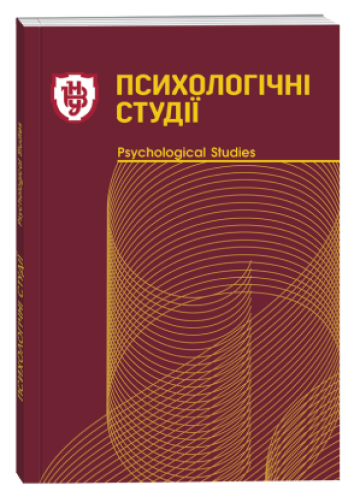PSYCHOSEMANTIC REPRESENTATION OF MARRIAGE AND FAMILY RELATIONS IN THE PERCEPTION OF YOUNG PEOPLE
DOI:
https://doi.org/10.32782/psych.studies/2023.2.23Keywords:
parental family, marriage, marriage and family relations, ideas, parents’ ideas, psychosemantic structure.Abstract
The purpose of the study was to analyze the psychosemantic representation of constructs of marriage and family relationships in the perception of young people, particularly women. Taking into account the fact that the parental family has a significant influence on the development of ideas about future marital relations, we compared in this study the parental and expected models of marriage and family relations. Research methods include theoretical methods, such as analysis and synthesis of scientific literature, systematization and generalization of research as well as empirical methods, such as a structured essay about the parental and their own potential family, content analysis, and percentage ratio. Text analysis suggests that students have a certain perception of the family as a functional and role system. The descriptions clearly show the students’ relevant needs for security, belong ing, family communication, preservation of family heritage, values and attitudes. According to the statements, the psychosemantic structure of marriage for the vast majority of respondents reflects its systemic content, where the key elements are security (the constructs “cave”, “nest”, “castle”, “house”, “flowering garden” are used), mutual support (“web”, “team”, “harmonious orchestra”), responsibility and fulfilment of a certain amount of duties as in a “bee hive”, “ant farm” or “ship”. Students also describe crisis periods in family life (“mountain range”) and postcrisis growth (“when you go through it, you get an incredible view, incredible sincere emotions”). Comparative analysis of psychosemantic units of texts about their parental family as well as their own potential family showed that most respondents adopt their parents’ ideas about family relationships and think critically about family conflicts and crises. Students with an unfavourable climate in their parental family are dominated by psychosemantic structures, the content of which contains idealized views of their future marriage relationships, a vision of marriage as a palette of feelings rather than a system of relationships. Conclusions. The analysis and psychosemantic representation of ideas about future marital relations play a significant role in making strategically important decisions in a person’s life, in particular in choosing a marriage partner and building a healthy family. The study results made it possible to identify the criteria for building a program of psychological support for young people at the stage of preparation for marriage.
References
Мацюк В.В. Психологічні механізми формування у молоді образу шлюбного партнера : автореф. дис. на здобуття наук. ступеня канд. психол. наук : 19.00.07 «Педагогічна і вікова психологія», 2009. 22 с.
Федоришин Г.М., Михайлюк І.Б. Модель психологічного супроводу усвідомленого вибору жінками шлюбного партнера. «Актуальні питання науки, освіти і суспільства: теорія і практика» : матеріали Міжнародної науково-практичної конференції. 28 жовтня 2022 р. Ч. 2. Умань. С. 40–42.







